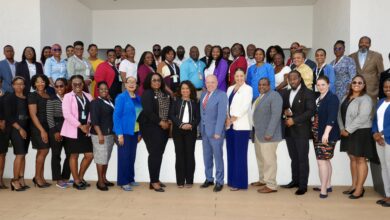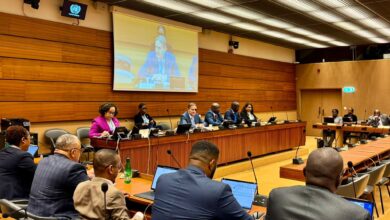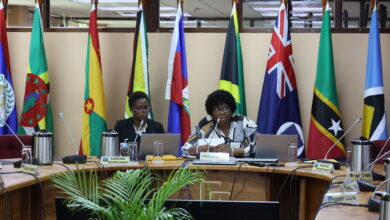The Caribbean Regional Public Health Agency (CARPHA) will present a policy brief on the Zika virus at the Intersessional Meeting of CARICOM Heads of Government on February 16-17 in Belize. To date, Zika has been confirmed in five CARICOM territories and other Caribbean jurisdictions have also reported Zika transmission.
The brief will give policy recommendations for strengthening national and regional action in the face of this threat, building on the 17th Special Session of the Heads of Government of CARICOM in November 2014, on public health threats. The 17th Special Meeting of CARICOM Heads was held in Trinidad and Tobago November 4, 2014, to address the threats of Ebola and Chikungunya.
The agency has stressed the need for the Region to continue its coordinated response to the Zika virus (ZIKV). This follows the World Health Organization (WHO) declaration on February 1 that clusters of microcephaly and other neurological disorders potentially linked to the spread of the Zika virus (ZIKV) represent a Public Health Emergency of International Concern (PHEIC). According to CARPHA, the need for the Caribbean region to continue its ongoing and coordinated response to the threat of Zika virus (ZIKV) and any potentially associated risk has been reinforced by this, the fourth-ever such declaration.
The increased level of attention created by this Declaration has the potential for further impact on the travel and tourism industry, particularly as most Caribbean economies are so highly dependent on tourism. The risk of regional spread of the disease is also real because the Aedes aegypti vector is prevalent throughout the Region. This means that it is of critical importance that, as a Region, strong measures are taken to eliminate mosquito breeding and to avoid being bitten. This is especially important for persons at risk of complications of Zika, such as pregnant women, and all should work to those ends to minimise human and economic damage.
CARPHA has supported its member states by enhancing regional surveillance and the Agency’s capacity for ZIKV testing, by monitoring regional and global developments, partnering with regional and international stakeholders, and providing updates for Ministries of Health and other key stakeholders.
The Regional organisation has stressed the importance of a coordinated, sustained response at regional and national level that involves everyone including those in the health, education, travel and tourism, media, local government sectors, private enterprise and householders.
Some essentials include:
- A well-coordinated, continuous public education campaign on how to stop mosquitoes breeding and biting.
- Balancing informing the public and avoiding unnecessary anxiety and panic.
- Mobilisation of resources for strengthening of vector control capacity in countries.
CARPHA continues to urge persons to adopt protective measures to control mosquito populations and the prevention of mosquito bites in at-risk individuals, especially pregnant women. CARPHA has developed Zika Guidelines for Travellers, Zika Guidelines for Hotels and Guesthouses. The agency has also produced FAQs on ZIKV. (Adapted from Caribbean Public Health Agency Press Release)






